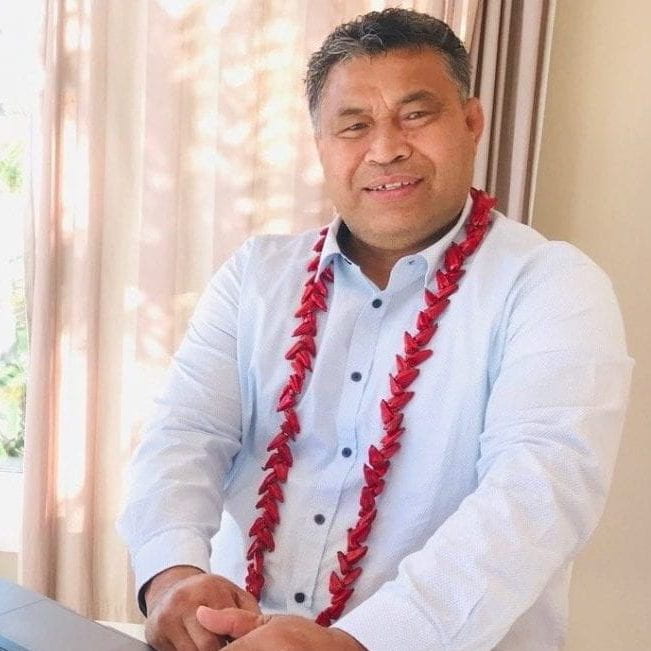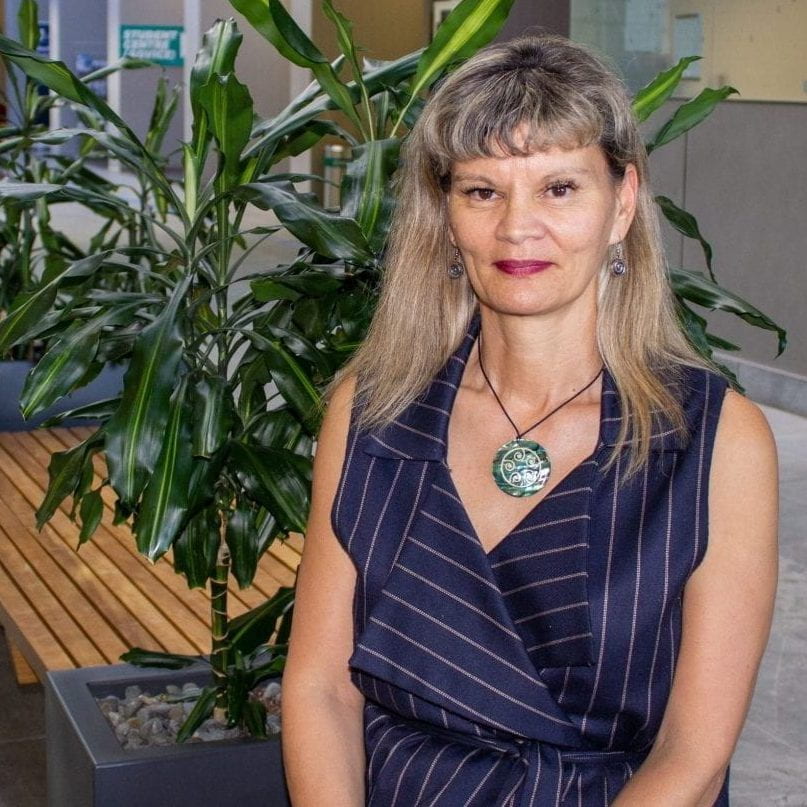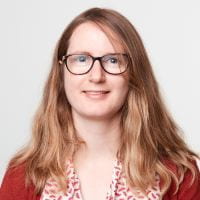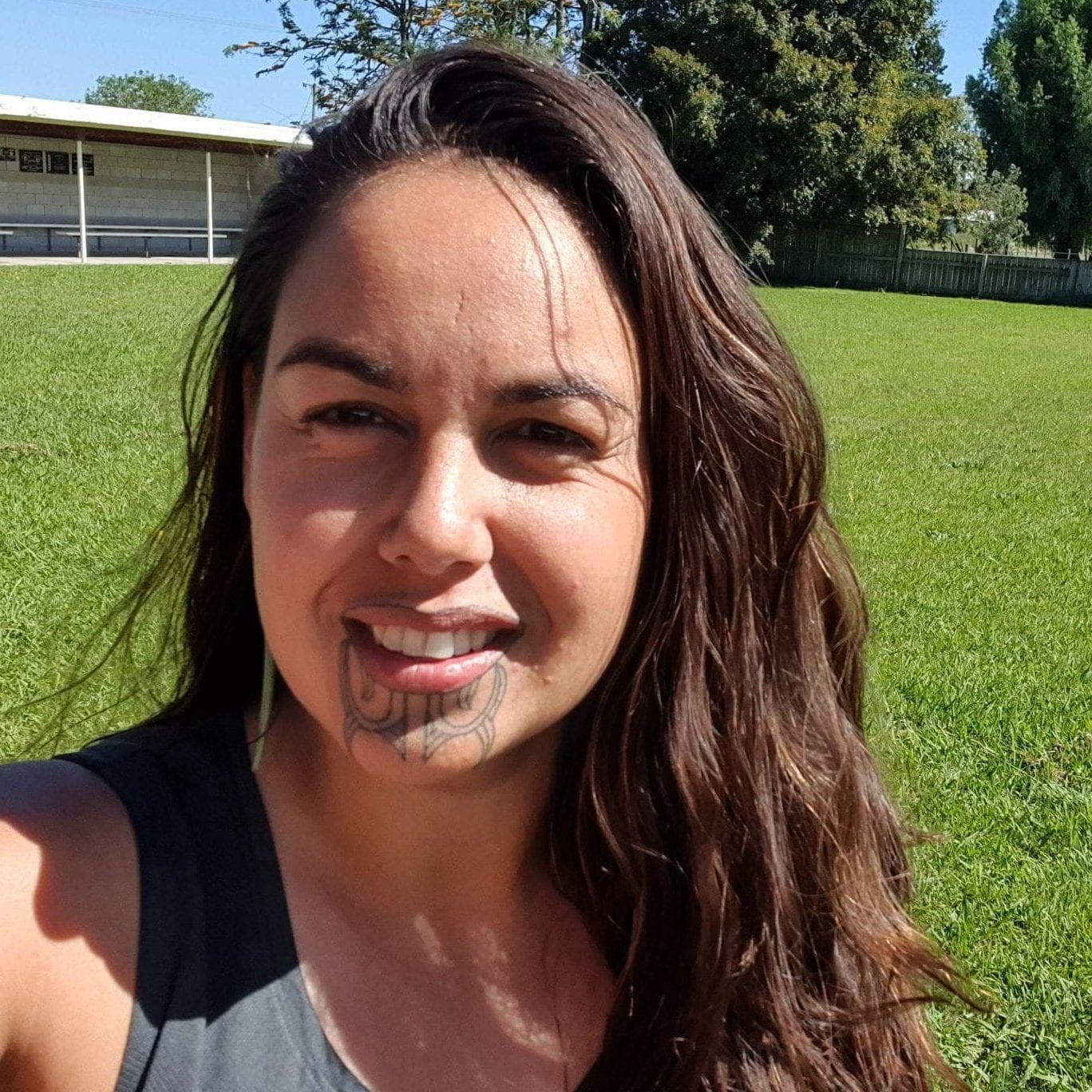Meet the Researcher

TUFULASI TENALI
Tufulasi Taleni is part of A Better Start’s Successful Learning team. Here he talks about his wish for this year, the best piece of advice his father gave him, and the best book he has read recently.

TANIA CARGO
Tania Cargo co-leads A Better Start’s Resilient Teens team, which is working with Māori and Pacific students, schools and communities to co-design and test a digital platform to offer young people and their families easier access to evidence-based help and advice to maintain good mental health.

PROFESSOR RACHAEL TAYLOR
Professor Rachael Taylor, leads A Better Start’s strategic research project, Moemoeā, which looks at sleep, health, communication & wellbeing of pepi and their whānau.

DR SARAH MAESSEN
A researcher with A Better Start’s Healthy Weight team, Dr Sarah Maessen talks about her current project, surviving lockdown and the best piece of advice she has ever received.

DR NAOMI SIMMONDS
Dr Naomi Simmonds is co-lead on A Better Start’s Kaupapa Māori project Raranga Raranga Taku Takapau: Hapū Ora for Tamariki. She talks about her wish for this year, the best piece of advice her mother gave her, and the best book she has read recently.
Tufulasi Tenali
CAN YOU TELL US ABOUT YOUR CURRENT PROJECT?
In my current PHD study, I am looking at the impact of effective leadership in making a better start for Pasifika learners’ learning, health and wellbeing.
WHY IS THIS RESEARCH IMPORTANT?
Current research and literature confirm that poor education contributes to poor health, low paid jobs, unemployment, poverty – these factors have sadly and negatively impacted on the lives of Pasifika people. This motivates me to look at ways to make sure Pasifika children make a better start in their learning, health and wellbeing and carry on throughout their educational journey. Effective leadership has a huge part to play in making sure educators, families, community/churches and government agencies contribute successfully in making a better start to Pasifika children’s learning, health and wellbeing.
WHAT EXCITES YOU ABOUT THIS PROJECT?
In the past, I worked in a role as Senior Pasifika education adviser for 16 years – a role that gave me an opportunity to provide professional development programmes and initiatives to support school leaders, teachers, boards of trustees and also families and community to lift the engagement and achievement of Pasifika students. During that time, I developed a Pasifika Education Initiative known as the ‘Samoa-based Malaga’ (Samoa Trip). This initiative gave teachers and leaders an opportunity to visit Samoa and stay in the village for 8 days to experience the Samoan culture. This opportunity gave immense cultural experiences for school teachers and leaders to be able to work with Pasifika students in schools in Aotearoa. All of that leads me to this exciting part of my PhD journey – to continue to conduct research that focuses on Pasifika education achievement.
THE BEST PIECE OF ADVICE YOU HAVE EVER RECEIVED?
My father said this to me as I grew up in the village: “To become an effective leader, you must be a servant first, learn as much as you can while becoming a leader in the future – learn to love, learn to respect, learn to persevere, learn to serve with humility. Never forget where you belong and always look after your name”.
A GREAT BOOK YOU HAVE READ RECENTLY?
Recently, I revisited the great book by Nelson Mandela, Long Walk To Freedom. This is to provide some inspiration for my research study on leadership.
THE PEOPLE (ALIVE OR NOT) YOU WOULD LOVE TO MEET?
President Nelson Mandela, an inspirational leader of all time. And, my own father who was my greatest mentor – my spiritual and cultural leader.
Tania Cargo
CAN YOU TELL US ABOUT YOUR CURRENT PROJECT, AND WHY IT’S IMPORTANT?
Our project is called HABITs “Health Advances through Behavioural Intervention Technologies”. It is about trying to provide teens/rangatahi and their whānau with ways to support psychological wellbeing/hauora hinengaro through the use of digital interventions (DI’s). DI’s have the advantage of being able to be accessed and used by teens 24/7. So when and where youth want or need to access support.
WHAT STAGE IS YOUR RESEARCH AT?
We are excited to be implementing HABITs into 4 high schools. We have a HABITs ambassador at each school who helps staff and students to be able to use the tools. We can’t wait to see how each school is able to benefit from HABITs and what the evidence says.
WHAT MAKES YOU EXCITED ABOUT THIS PROJECT?
That more young people will be able to get support, when they want and need it. We know that 75% of young people who want support aren’t able to access it. So being able to have a DI as an option is really helpful.
WHAT DO YOU LOVE ABOUT BEING INVOLVED WITH A BETTER START?
I love the fact that we all want our tamariki, rangatahi and whānau to have the best possible start to life and to maintain and expect that hauora should and can be attainable for all. I love the other amazing researchers I work with throughout New Zealand and overseas and that we all have a similar desire to help make a difference. I also love the MBIE has allowed us to have a longer term approach to delivering impactful and relevant research.
2020 WAS A DISRUPTIVE AD DIFFICULT YEAR FOR MANY. WHAT IS YOUR WISH FOR THIS YEAR?
I wish for us, as Kiwis, to be able to embrace technology and see it as adding value to the way we support young people and their whānau.
THE BEST PIECE OF ADVICE YOU HAVE EVER RECEIVED?
My nana always said “he aha te mea nui… he tāngata, he tāngata, he tāngata”. The most important thing in this world is people. She encouraged us to keep working on relationships and to keep your whānau together.
A GREAT BOOK YOU HAVE READ RECENTLY?
Barack Obama’s book A Promised Land. Incredibly inspirational.
THE FIVE PEOPLE (ALIVE OR NOT) YOU WOULD LOVE TO MEET?
1. I met Dame Whina Cooper once, when I was a lot younger, so would love to chat to her again. 2. Rosa Parks – what she did was inspiring. 3. Barack Obama after having read his book. 4. Michael Jordan – to talk about his work that he is doing now. 5. Melinda Gates – I’m pretty sure she is the brains.
Professor Rachael Taylor
CAN YOU TELL US ABOUT YOUR MOEMOEA AND WHY IT’S IMPORTANT?
Getting sufficient good quality sleep is critical for children to grow well, feel good, and cope with daily life. Interventions in predominantly European populations have shown that sleep interventions in infancy can substantially reduce the risk of overweight in childhood. However, little attention has been paid to developing sleep and wellbeing interventions that meet the needs of Māori and Pacific whānau, despite these groups being at greater risk of the health outcomes associated with poor sleep.
WHAT STAGE IS YOUR RESEARCH AT?
We are currently working with Māori and Pasifika whānau and organisations to determine why and how sleep affects their health, and what would help them to improve sleep in their pepi and tamariki, before undertaking an intervention trial in 2021.
AS A RESEARCHER, WHAT MAKES YOU EXCITED ABOUT THIS PROJECT?
Working with communities to make a real difference to their lives by developing resources that are attractive, feasible and desired – and that have the potential to improve wellbeing, sleep and connectedness among whānau.
WHAT DO YOU LOVE ABOUT WORKING WITH A BETTER START?
The ability to work collaboratively across a wide range of disciplines that I have not previously been involved with, and the focus on making a real difference.
THE WELLBEING OF PEPI AND WHANAU IS A KEY FOCUS OF YOUR WORK. WHAT DO YOU DO TO LOOK AFTER YOR OWN WELLBEING?
Sleep well of course (well I try to anyway), being active, spending time with friends and family.
THE BEST PIECE OF ADVICE YOU HAVE EVER RECEIVED?
Live life to the fullest.
A GREAT BOOK YOU HAVE READ RECENTLY?
Anything by Karin Slaughter.
THE FIVE PEOPLE (ALIVE OR NOT) YOU WOULD LOVE TO MEET?
Michelle Obama, Martin Luther King, Elvis, Rosa Park, Cleopatra.
Dr Sarah Maessen
CAN YOU TELL US ABOUT YOUR CURRENT PROJECT?
Recently we’ve seen that the number of 4-year-olds attending the B4 School Check who are overweight or obese has been decreasing, across all demographic groups. This is a unique finding on a global scale – the few other countries with similar trends have only observed them in particular groups or parts of the country. Though this is good news for the health of New Zealanders, the cause remains a mystery. We’ve teamed up with some other researchers around the world to investigate what’s changed in New Zealand in the last two decades that could explain the trend. In particular we’re looking at changes to national policies which have, for example, improved access to good quality early childhood education, introduced paid parental leave, and changed smoking patterns. Obesity is a complex problem with no easy solution, so if we’ve already stumbled upon some solutions that are working, we need to identify them so they can be enhanced and/or adapted for different settings and higher-risk groups.
AS A RESEARCHER, WHAT MAKES YOU EXCITED ABOUT THIS PROJECT?
I’ve always hoped that my research could contribute to happier, healthier children growing up to be happy, healthy adults. In a lot of research there is a big gap between what we discover in the lab or at our computers, and what happens in the real world. This particular project feels very rooted in the reality of what is already happening in New Zealand, and I believe that it has the potential to provide insights that could improve outcomes for children around the world.
THIS YEAR HAS BEEN DISRUPTIVE AND DIFFICULT FOR MANY. HAS 2020 CHANGED ANYTHING FOR YOU?
Happily, I was locked down with my favourite person in the house we had just bought, and we were both able to do most of our work from home. We adopted a puppy not long before the first lockdown and he helped keep us sane and exercised. I was already practically a Zoom pro after meetings with international collaborators, but unfortunately a lot of the people I was working with overseas suddenly had their time taken up by a slightly more pressing public health crisis than the one I was interested in discussing with them. Overall the main difference from any other year was fewer plane trips and holidays and more board games, phone calls and elaborate meals.
WHAT’S YOUR FAVOURITE SUMMER ACTIVITY?
Tramping or otherwise exploring the beautiful parts of the country that are so much nicer when the sun is shining!
THE BEST PIECE OF ADVICE YOU’VE EVER RECEIVED?
Growing up, we had a fridge magnet with the quote “Be kind, for everyone you meet is fighting a hard battle”. I still think of it whenever someone tests my patience.
Dr Naomi Simmonds
CAN YOU TELL US ABOUT YOUR CURRENT A BETTER START PROJECT, AND WHY IT’S IMPORTANT?
I am co-lead on the Kaupapa Māori project “Raranga, Raranga Taku Takapau: Hapū Ora”, which is a multi-site project considering maternal wellbeing and supporting tamariki to be born into healthy and well whānau.
Ultimately, we are hoping to demonstrate the transformative potential, as well as the opportunities and challenges, for maternal wellbeing through Māori frameworks, knowledges and practices. This project starts and finishes within a worldview that upholds the sanctity of the maternal body and that positions children as taonga within our whānau and communities and we seek to understand how this can transform maternal and infant wellbeing in Aotearoa.
This is important because for a long time this worldview and its associated practices have not been given priority within maternities and as a result Māori women and whānau suffer poorer maternal health outcomes.
WHAT STAGE IS YOUR RESEARCH AT?
There are four key sites in this project – Tāmaki Makaurau, Te Whare Pora at Flaxmere, Rāhui Pokeka, and Ngāti Haua. We are in the process of collaborative analysis of all the data and making sense and meaning of the specific findings from each site and the project-wide findings. From here we will be engaging with end-users to understand what these findings mean in real terms for wāhine and their whānau.
The team has also been busy writing submissions for Te Pae Ora and for the ACC Maternal Birth Injury Amendment Bill.
WHAT DO YOU LOVE ABOUT BEING INVOLVED WITH A BETTER START?
I have been fortunate to be part of A Better Start for two projects now. To my mind, the critical time of pregnancy, birth and early childhood is so sacred, it is a privilege to be able to hear the stories and experiences of whānau during this time and to hopefully share some of the learnings and find pathways for our babies to be born into healthy and well whānau. A Better Start has been a great support to this work and to supporting us to share it widely.
THE PAST COUPLE YEARS HAVE BEEN DIFFICULT AND DISRUPTIVE FOR MANY. WHAT IS YOUR WISH FOR THIS YEAR?
Within the chaos and disruption there are always pockets of joy that we can find and my focus in 2021 was just trying to slow down and appreciate those moments of joy – most of which were found in my children and in connecting with my lands and waters in the South Waikato. So, my wish for 2022 is to find hope in the moments of joy that are scattered throughout our lives … oh and hopefully get some writing done too!
THE BEST PIECE OF ADVICE YOU HAVE EVER RECEIVED?
My wise and wonderful mother always said to me “this too shall pass” and “there is nothing as sure as change” and it has stuck with me through my life – both through the tough times and the wonderful times. It has been a great reminder of the impermanence of most things and the fact that things will change. It is helped me to weather the storms, but also to feel grateful for things as they are
A GERAT BOOK YOU HAVE READ RECENTLY?
I’ve just finished Girl, Woman, Other by Bernadette Evaristo. She’s a British writer and it is a really interesting book that canvasses the lives of black women in Britain, interweaving multiple stories with a focus on a different women in each chapter – and she doesn’t use any capital letters in the book, which takes a bit of getting used to. I am also reading The Abundant Garden, by Niva and Yotam Kay, as I am trying my hand at gardening – so far, I am stuck in the theory of it all.
THE FIVE PEOPLE YOU WOULD LOVE TO MEET?
1. Māhinaarangi, my ancestor whose footsteps I have been following through my research (she walked over 600km pregnant and birthed my ancestor Raukawa along the way.) 2. Mariah Carey (childhood dream). 3. Alice Walker, one of my favourite authors. 4. Tom Hanks, favourite actor. 5. My Koro Piripi – I never met him, but he left amazing diaries which I have been fascinated by.
